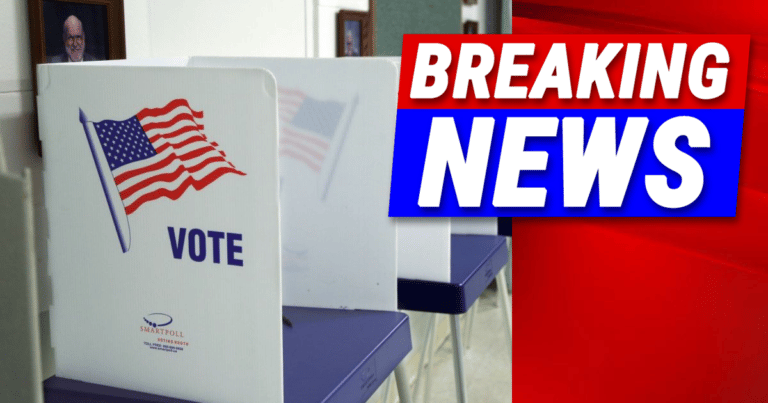
As election season gears up, the conversation around election integrity has once again taken center stage. Voter confidence hinges on faith in a fair and transparent process, yet some states have let basic election laws slide. The consequences of such negligence were clear in 2020, where a chaotic process left many Americans questioning the results.
With allegations of mismanagement and lax enforcement by state election officials, it’s easy to see why millions still doubt the legitimacy of that election. Perhaps the greatest concern of all, however, is the alarming trend of allowing non-Americans—yes, even illegal aliens—to vote. States like Ohio, Florida, and Texas aren’t just concerned; they’re taking the Biden-Harris administration to court over it.
These states are fed up and fighting back, filing lawsuits against the Department of Homeland Security (DHS) to gain access to databases that verify the citizenship status of registered voters. The Biden administration has blocked these attempts, leaving election officials in Republican-led states unable to ensure only eligible U.S. citizens are casting ballots. So why is the administration stonewalling? And what exactly are they afraid of?
From Just the News:
Three states led by Republicans have gone on the offensive against the Biden administration by suing the Department of Homeland Security (DHS) over access to information to verify the citizenship status of registered voters. So far, the Biden/Harris White House is stonewalling the efforts at maintaining voter integrity.
Red States Demand Citizenship Verification
Three states—Ohio, Florida, and Texas—are leading the charge by suing the DHS, claiming the agency has repeatedly refused to provide access to its citizenship verification database.
For these states, this isn’t just about verifying voter rolls; it’s about protecting the very core of the electoral process. Federal law makes it clear: only U.S. citizens are allowed to vote in federal elections. But what good is the law if states can’t even verify who’s following it?
Ohio’s Secretary of State Frank LaRose is one of the key figures leading this legal battle. He’s repeatedly asked DHS to access its Person Centric Query Service (PCQS), a federal tool designed to verify citizenship. According to LaRose, DHS has denied Ohio’s requests at least four times, effectively blocking the state’s efforts to remove non-citizens from its voter rolls.
In a recent statement, LaRose didn’t mince words: “The Biden-Harris Administration is engaging in obstruction and outright abuse of power to prevent us from removing non-citizens from our voter rolls. I take my duty seriously, so if they want a fight over the integrity of our elections, they’ve got it.”
More States and Lawmakers Join the Fight
Ohio isn’t alone. Florida and Texas are also suing DHS, with both states citing instances where the agency refused to cooperate in verifying the citizenship status of potentially ineligible voters.
DHS’s Systematic Alien Verification for Entitlements (SAVE) database does offer limited information, but according to these states, the PCQS service would be far more effective for confirming citizenship without requiring specialized immigration identifiers. Florida’s lawsuit states that DHS is legally obligated to provide this information, and Texas Attorney General Ken Paxton has made it clear: if the federal government continues to ignore the law, they’ll see him in court.
This effort is also gaining momentum among other conservative-led states. Sixteen state attorneys general, led by Ohio’s Attorney General Dave Yost and South Carolina’s Attorney General Alan Wilson, signed a joint letter demanding that DHS provide citizenship verification records.
The letter argued that federal law requires DHS to coordinate with states on voter registration verification. Yet, the Biden administration continues to drag its feet, leaving many wondering if this resistance is more than just bureaucratic red tape.
Blocking the Truth or Blocking Voter Fraud?
For those concerned about election integrity, DHS’s stance is baffling. Federal law prohibits non-citizens from voting in federal elections. It’s a straightforward rule that ensures only U.S. citizens determine the country’s leadership. But without verification tools, states are left guessing.
For example, Texas recently announced that over 1 million ineligible voters have been removed from its rolls since 2021, including more than 6,500 non-citizens. Texas Governor Greg Abbott noted that, of these non-citizens, nearly 2,000 actually voted in previous elections.
If Texas and Ohio’s cases are anything to go by, it’s clear that this issue extends well beyond any one state. The Biden administration’s reluctance to support citizenship verification efforts raises serious questions about its commitment to upholding the sanctity of U.S. elections.
Is this stonewalling really about “protecting” voter rights, or is it about preventing states from uncovering a more widespread issue of non-citizen voting?
DHS’s Response—and the Bigger Picture
In response to these lawsuits, DHS has remained tight-lipped, refusing to comment on pending litigation. However, in a recent statement to Just the News, DHS did claim that its SAVE system is “the most secure and efficient way to verify an individual’s citizenship or immigration status.”
But according to state election officials, SAVE’s limitations mean they can’t fully clean up their voter rolls. For Ohio, Florida, and Texas, this is unacceptable, and they’re prepared to take their battle for election integrity all the way to the courts.
As we approach the next presidential election, this issue is unlikely to disappear. On the contrary, it’s shaping up to be one of the most significant legal battles of the 2024 election cycle.
If the federal government refuses to play ball, the outcome could drastically impact how millions of Americans perceive election integrity and trust in the democratic process.
Key Takeaways
- Ohio, Florida, and Texas are suing DHS for blocking access to federal databases that verify voter citizenship.
- DHS’s refusal to cooperate has raised questions about the administration’s stance on election integrity.
- With the 2024 election looming, this legal battle could define state and federal relations on voting rights.
Source: Just the News


